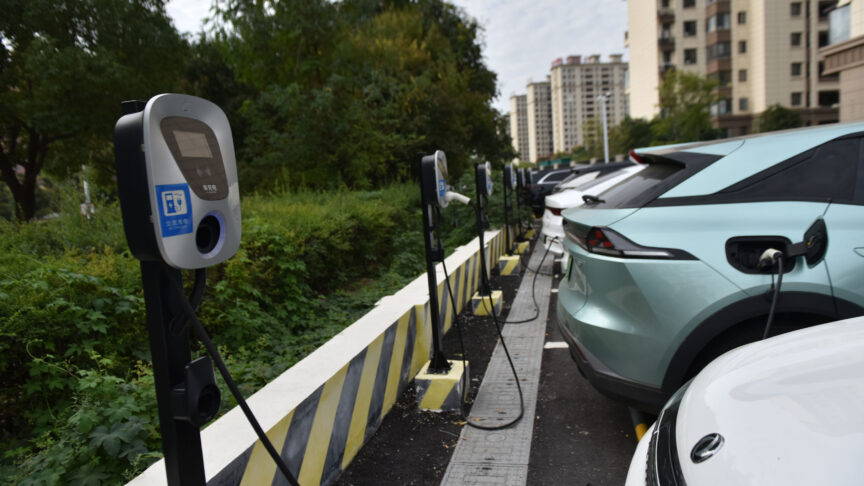The EU’s misguided export regulation on vaccines
The regulation sets a damaging precedent for trade restrictions on vaccines and undermines the EU’s credibility as a supporter of open trade
The European Commission’s announcement last week of an export authorisation regime for covid-19 vaccines was overshadowed by a diplomatic fiasco. Scrambling to implement the new regulation, the Commission invoked an emergency clause in the Brexit agreement to regulate the transfer of vaccines to Northern Ireland, then performed an abrupt U-turn in the face of a predictable political outcry. The episode was an embarrassment for the Commission and its president, Ursula von der Leyen, but it was far from the only problem with the new regulation. Even without this clause, the measure is a dangerous step, compounded by a lack of clarity about how it will be used in practice. It is a poorly conceived response to political difficulties – one that could increase vaccine nationalism while proving largely ineffective at addressing the problem at which it is supposedly targeted.
The European Union came up with the regulation against the background of a series of problems that have plagued the European roll-out of covid-19 vaccines. The acquisition and distribution of vaccines were supposed to demonstrate European solidarity, following the agreement of a common EU strategy last June. Under this arrangement, the Commission would conclude advance purchase agreements (APAs) with vaccine manufacturers on behalf of all member states, and then authorise vaccines for member states to administer once they were approved by the European Medicines Agency (EMA). The common strategy was designed to prevent member states from competing against each other for vaccines, and to use the collective weight of the EU to gain favourable terms in negotiations with pharmaceutical companies.
However, the EU’s vaccine effort has experienced a succession of setbacks. The EMA was slower to approve vaccines than agencies in countries such as the United Kingdom, the United States, Canada, and Israel. Even after the EMA approved the Pfizer-BioNTech vaccine on 21 December, some member states seemed unprepared for the task of distributing and administering it. At the same time, some European journalists began to ask why the Commission had not bought more of the Pfizer and Moderna vaccines, even when it was clear they would be the first to be rolled out and that they were achieving impressive results in trials. European governments and the Commission were on the defensive, as EU member states seemed to be lagging behind other wealthy countries. There were a variety of reasons for the slow pace at which the EU acted, but the bloc’s risk-averse and methodical political culture clearly played a central part in this.
The developments that finally pushed the EU to take action were announcements from first Pfizer-BioNTech and then AstraZeneca that their delivery of vaccine doses to the EU would be delayed because of problems at their European manufacturing sites. In particular, AstraZeneca’s delay infuriated European officials, because of its scale (the company said it would only deliver around 40 per cent of scheduled doses in the first quarter of 2021) and because the company was continuing to supply doses to the UK from a separate manufacturing facility in Britain. AstraZeneca argued that it had had time to smooth out production problems in the UK, because the British government had placed its order three months before the EU. European officials also complained that the company had reportedly sent an unstated quantity of doses to the UK from one of its continental European sites, at a time when the EU had not yet approved the vaccine.
The EU may never actually use the regulation to block the export of vaccines.
According to press reports, there was a lively dispute within the Commission about whether the EU should merely demand greater transparency on exports (which would reveal how many vaccine doses AstraZeneca had sent to the UK from the EU) or also require that vaccine exports be authorised. In the end, it went for the stronger option: EU authorisation would be required for exports to a range of mostly wealthy countries (but not to many lower- and middle-income countries, nor those in the EU’s eastern and southern neighbourhoods). The aim – as the Commission’s executive vice-president, Valdis Dombrovskis, argued – was to ensure that pharmaceutical companies would honour all APAs with the EU. Anticipating the regulation, German health minister Jens Spahn said it was “not a matter of ‘Europe first’, but of Europe’s fair share”.
The regulation is presented, then, as a defensive measure. It allows the EU to block vaccine exports if they would prevent companies from supplying their promised doses to the bloc. But it also says that the EU will ensure that other countries’ purchase orders are met “as much as possible”. What would this mean in practice? It is worth playing out different scenarios in some detail, to show how the regulation seems a clumsy instrument to achieve its stated goals.
There is little in this “transparency and authorisation mechanism” that would address the problem that officials have highlighted in the case of AstraZeneca, where the company is falling short on its deliveries to the EU while continuing full production at sites outside the bloc. The terms of the regulation would not, apparently, permit the EU to hold back exports of other vaccines such as Pfizer’s to the UK to make up the shortfall. And Spanish Foreign Minister Arancha González Laya seemed to confirm this when she appeared on the BBC to discuss the new rule. At most, the EU could have held back any earlier deliveries by AstraZeneca from the EU to the UK – although, at that point, the prospective shortfall had not yet been announced.
The regulation would mainly be relevant when a company experienced production problems that prevented it from delivering all its scheduled vaccine doses to the EU, but was continuing to ship some doses overseas. Here, a crucial question arises. Would the Commission ask member states to block exports only if it believed that these were disproportionate to the deliveries to the EU – in other words, if it thought that the pharmaceutical company was somehow expecting Europe to bear the brunt of the shortfall? This approach would correspond with the stated objective of merely seeking “Europe’s fair share” – but it is almost impossible to imagine such a turn of events.
Alternatively, would the EU block exports if there was a shortfall at a manufacturing site in Europe, and the company seemed to be scaling back deliveries from this plant to the EU and other external purchasers on a proportionate basis? Would the EU withhold export authorisations until the company had delivered its scheduled complement of vaccines to Europe, so that third countries had to cope with any shortfall on their own? Clearly, such a step would go beyond “fairness” to a protectionist and “Europe first” position – one that would be at odds with the EU’s declared support for open, rules-based trade and vaccines as a global public good.
Given these different options, the EU may never actually use the regulation to block the export of vaccines. But, even if the bloc does not use it, the regulation sets a damaging precedent for trade restrictions on vaccines and undermines the EU’s credibility as a supporter of open trade. At the same time, by giving itself the power to block vaccines, the EU may raise public expectations that it will do so if manufacturing problems persist and deliveries continue to fall behind schedule. If the EU were, in fact, to deny export authorisation for some vaccines, this could have a significant effect on global supply. As trade scholar Simon Evenett has detailed, it could also trigger protectionist measures along the complex vaccine supply chain, leaving EU member states and many other countries worse off.
Meanwhile, the EU’s hasty efforts to protect its own supply stand in stark contrast to its failure to address the more serious imbalance in access to vaccines between the word’s wealthy countries and the rest. That issue remains to be tackled. For now, the EU could make the best of an unfortunate episode by clarifying that it will only use export restrictions on vaccines in the most narrow and compelling circumstances, and by withdrawing the regulation as soon as possible.
The European Council on Foreign Relations does not take collective positions. ECFR publications only represent the views of their individual authors.



